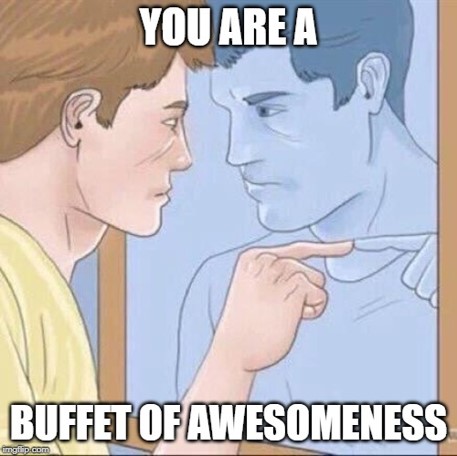When I'm My Harshest Critic as the Father of a Child With Medical Needs
I want to share a story of a mistake I made. Maybe you’ve made the same one. My son, who has a congenital heart defect, takes several medications throughout the day and we’re definitely in a good routine about administering those meds. One day I gave him his regular afternoon dose, told my wife I’d done so and she replied with, “Oh… I already gave it to him.”
I felt like I was hit by a bus. “Oh no, what did I do? What did I do! He’s going to get sick and it’s all my fault!” I got on the phone and frantically called the cardiologist, all the while feeling incredibly guilty. He told me not to worry, just to skip his evening dose and you know, don’t do that again. Crisis averted.
My son was 100 percent fine. Me? Not so much. Because you know what happened: the self-talk began. How could you let this happen? This is your kid, you could’ve killed him. Don’t be so “stupid” next time. And on and on. Yeah, I bet you’ve been there too.
Self-talk is a fascinating thing because we can often use it to encourage ourselves, drum up some bravery and push ourselves to better places. But quite often our self-talk is just an effort to sabotage ourselves, and we essentially become our own bully. Want to know the person who tries to cut you down the most? Look in the mirror.
I’ve been fortunate to learn something from a hospital chaplain during a presentation about compassion fatigue. He asked a question that stopped me in my tracks. “If your best friend messes up or makes a mistake, would you talk to them the same way you talk to yourself when you mess up?”
Whoa, I thought, this is incredibly true. I’d never talk to my best friend in the same way. I’d try to be encouraging and supportive and give him a pep talk. If I talked to my best friend the way I talk to myself, he’d dislike me. Big time.

This made me think about how I talk to myself. Because listen: I’m going to screw up, you’re going to screw up. We’re not perfect people, we’re not perfect parents – and when you add a CHD or any chronic medical condition into the mix, it just gets even more bananas. So I think we owe it to ourselves to watch how we talk to ourselves. We owe it to ourselves – and our kiddos – to be the best version of us we can be, and that includes mentally. If we cut ourselves down for even the tiniest of mistakes, that only makes us feel worse about ourselves and in turn contributes further to our compassion fatigue. And before we know it, it’s a vicious cycle.
So before you start beating yourself up, stop for a second and think about whether you’d talk to your best friend – or even your own kid – that way. And consider changing the way you talk to the man in the mirror. It’s bound to be better for your mental health, and I think you’ll find out you can accomplish way more when you encourage yourself!
Getty photo by Andrey Popov.

